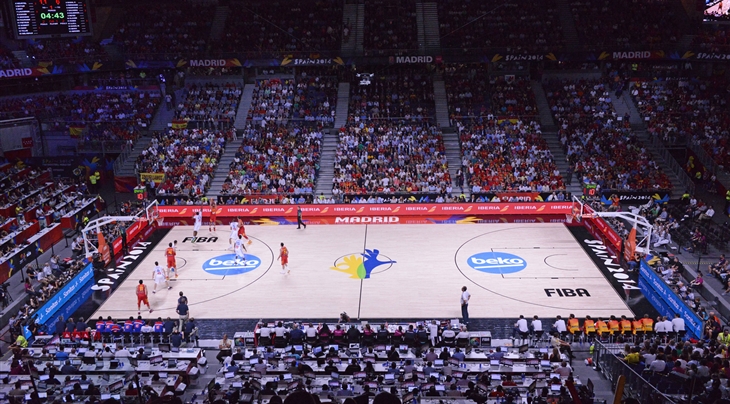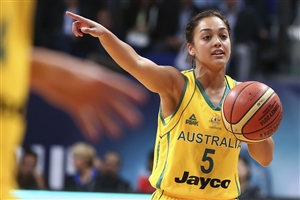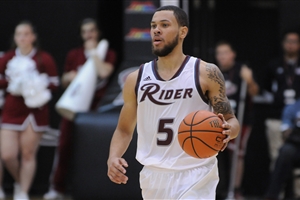
A bit of context to having no teams from the Americas bid on hosting the 2019 and 2023 FIBA Basketball World Cup
SAN JUAN (William Rosario's Somewhere in the Americas) - The candidates that make up the shortlist to host both the 2019 and 2023 FIBA Basketball World Cup have been announced. They are China, Germany - alone or possibly as part of a joint candidacy with France - the Philippines, Qatar and Turkey. No teams from the Americas. But it makes sense.
For those that don’t know, the next edition of FIBA’s flagship event is being labeled as the new FIBA Basketball World Cup and for good reason. Why new? Well, because there will be 32 instead of 24 teams and is expected to be hosted in at least 4 venues. And that pretty much narrows it down in terms of real candidates in the Americas.
If you think about it, an event of that big a scope can only be hosted by Brazil, Mexico, Puerto Rico, Venezuela and the United States. There are simply no other countries that have that many World Cup caliber arenas to have the possibility of hosting the event. Basketball infrastructure is a big problem in our continent, specifically in the Americas. There’s no going around that fact.
And even if you do, like in those five examples, then there’s the money and national federation structural issue, also hotel accommodation and security concerns that go all go into consideration for an event like this.
Brazil has just come out of a very successful FIFA World Cup and is preparing itself for the 2016 Rio de Janeiro Olympics. So they are obviously ready to host it, but they are sadly going through tough economical times as a national federation. They may come out of after they host the Olympics, but to bid right now for the Basketball World Cup would be unrealistic to their current situation.
Mexico also has all the elements to make it happen in terms of infrastructure capabilities, but their national federation status is a real obstacle on their possibility of even putting together a coherent bid to be considered to host the event. It is too soon for a country that as recently as four years ago had three basketball national federations running the sport. It is wise for them to spend their time still on getting their feet under them on the organizational aspects of being responsible for basketball in the country. That’s a tough task in itself.
Then comes Puerto Rico, also very capable of hosting the tournament on the venue, hotel, money, and security side of it. But, it is also a country with a national federation president that has made it clear that he does not want to even make an attempt at hosting the event. He is of the mentality of it being too big an event for too small of a country. And he might be right, that’s his opinion and he is in charge of basketball in the country, so that’s the end of it.
Some argue he might be wrong and that in a small country with plenty of venue possibilities and also a country where basketball is the undisputed number 1, there might be exciting travel opportunities for fans to pick and choose any venue they would like to visit on any given day of the competition. But, as I said it’s a moot point. For the moment, they will not bid and that’s all that matters.
Venezuela has two big minuses in terms of the atmosphere of the country at the moment. It really hurts their realistic bidding chances for this event. The travel situation (coming in and out of the country) is a nightmare and for 32 teams, with all the fans that travel with them…it is frankly impossible to happen. The security issue also affects their possibilities, so them not bidding is a sensible move from their federation at the moment.
Then there’s USA, a country that can actually host two Basketball World Cups at the same time, but that is not interested at the moment in doing so. USA Basketball is a business savvy entity and they have their reasons for not wanting to host. In the same vein as Puerto Rico, you just have to respect the fact that they don’t think it’s the right move for them right now and that ends the conversation on two countries that have all the elements to make it happen (USA obviously far ahead of Puerto Rico in that race).
Some people might point out other cases like Colombia, but honestly that is a team that could not even show up to this year’s South American Championship, so it would impossible to consider a country that has a bigger shot of not even qualifying to the event.
I am aware that I have just listed all the negatives here, but I actually think that this can be looked at from a different and positive point of view.
To me, this signals the fact that the national federations in the Americas are in the process of accepting their individual realities and focusing on organizing themselves ahead of the new competition system and everything that comes along with it in a couple of years.
For the Americas’ teams this adapting process will not be easy or the reasons I’ve listed above. 2017 involves a lot of planning ahead and structuring at all levels. And at the moment we are not prepared to go for a slam-dunk. Right now, today we need to be going back to the fundamentals.
This decision tells me they are starting to think in that sense, that they will begin by becoming stronger in their administrational efforts so that then, in the future they can maybe go for that slam dunk. This is a regrouping moment for everybody in the continent, even the top guns.
So…
Go Asia and Europe! Much success to you in hosting such a historic event!
William Rosario
FIBA
FIBA's columnists write on a wide range of topics relating to basketball that are of interest to them. The opinions they express are their own and in no way reflect those of FIBA.
FIBA takes no responsibility and gives no guarantees, warranties or representations, implied or otherwise, for the content or faccuracy of the content and opinion expressed in the above article.

















